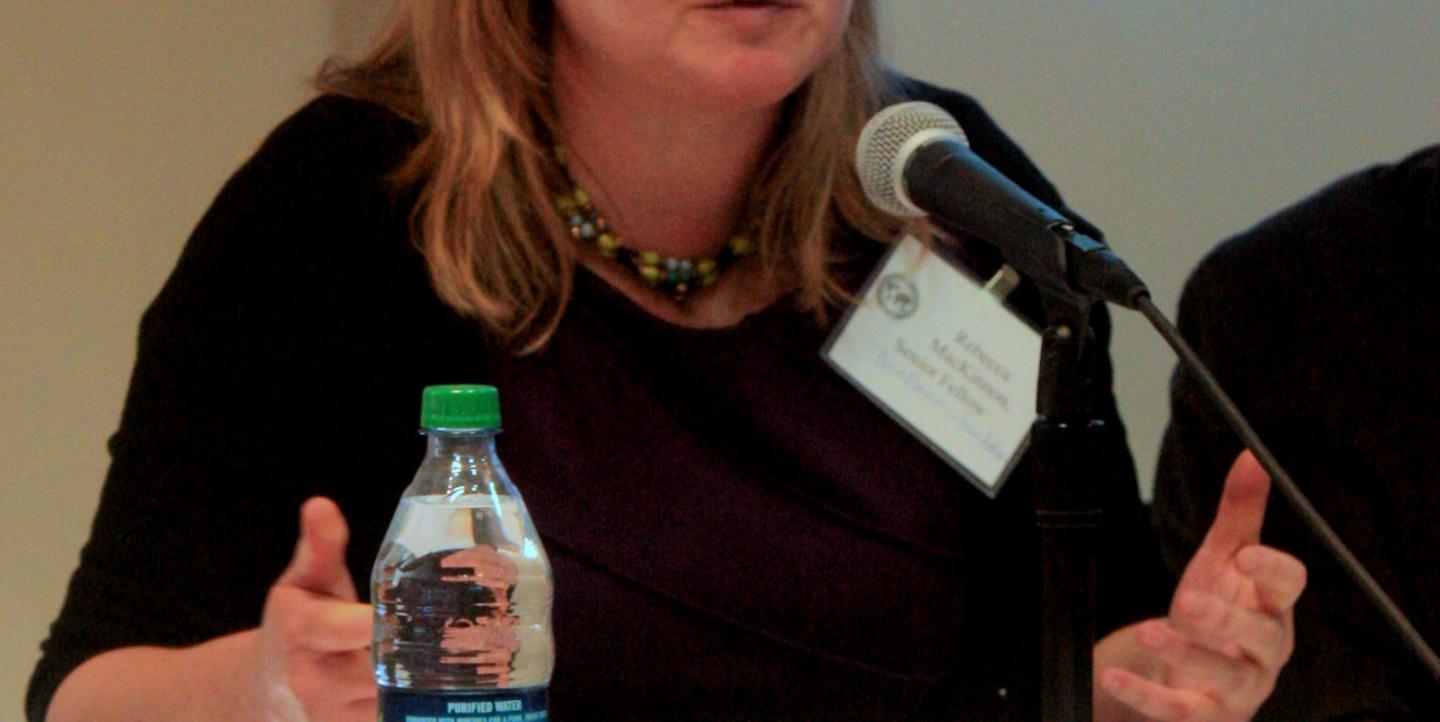Social media have transformed the way news is gathered and consumed, but over-reliance on technology can get in the way of excellent journalism.
“The best journalism is reporting on stories by digging up information, adding analysis and putting it into context in a way that’s not already on Google,” said Rebecca MacKinnon, former CNN journalist, co-founder of of Global Voices Online and currently a senior fellow with the New America Foundation.
Fluent in Mandarin Chinese, California-born MacKinnon spent parts of her early years in China and India. Over the past decade, she has been a global activist for Internet freedom and wrote Consent of the Networked: The Worldwide Struggle for Internet Freedom. In a recent talk at the American University’s Global Social Media Research Symposium and an interview with IJNet, she shared her view on social media, news objectivity and advocacy journalism.
Use but don’t over-rely on social media
“Journalists should not rely too much on online resources and downplay in-person skills. When I taught online journalism in Hong Kong, I found younger journalists sometimes over-relied on the Internet by getting all their story ideas from Google, Twitter, Facebook and other social networks. The real value journalists bring is not repetition, but going out in the real world and reporting on stories people cannot find online. Often, you don't really know what the story is until you get to the place, talk to the people there and ask them the right questions. In addition, online communications tools such as e-mail may not be secure enough to protect your sources.”
Offline engagement is as important as social media
“Social media are not the sole deciding factor that drives the success of social movements. The Arab Spring started out at the ‘1.0 stage’ before people used the Internet and social media to spread the word for their cause. For years, the most influential and creative activists from Tunisia, Egypt and other Arab countries actually met in person at a number of Arab blogger meetings. Offline exchange and personal ties were among the keys to the success of the movement in Egypt.”
Don’t let fake objectivity undermine morality
“All journalists should seek and respect facts. There is a difference between not being objective and having a moral compass and being an editorialist. In advocacy journalism, I don’t see how I can hide what I think is right behind some fake 'objectivity,' when, for example, someone is killed for peacefully advocating their opinions. There is a role for the kind of fact-based journalism which aims to make an impact and persuade people to take action on important issues.
"The classic American journalistic approach to objectivity is [specific to the United States]. If you look at journalism in Europe, the newspaper can be much more closely tied to political parties or ideological stances. It is common for many parts of the world to have journalism where people are pursuing facts and telling the truth while entering a political or ethical point of view. For some reason, a lot of American journalism schools act as if that phenomenon does not exist.”
You can watch the two-hour Global Social Media Research Symposium here.
Photo: Rebecca MacKinnon at the American University

